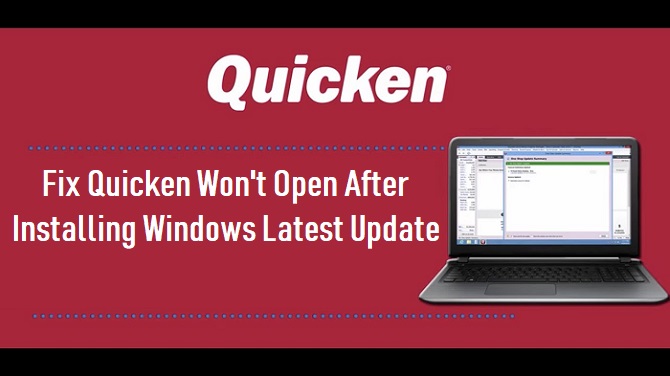
* WiperSoft Antispyware was developed to remove threats like Quicken Scheduled Updates in automatic mode. It is recommended to remove Quicken Scheduled Updates immediately.ĭownload this advanced removal tool and solve problems with Quicken Scheduled Updates and (*.*) (download of fix will start immediately): Download WiperSoft Antispyware to remove Quicken Scheduled Updates
#Quicken 2015 install problem Pc
After installation Quicken Scheduled Updates starts displaying ads, pop-ups, banners on your PC or in browsers. Also, it can create folder with name Quicken Scheduled Updates under C:\Program Files\ or C:\ProgramData. You can also find it in your processes list with name (*.*) or Quicken Scheduled Updates. Sometimes it creates new startup key with name Quicken Scheduled Updates and value (*.*). Quicken Scheduled Updates copies its file(s) to your hard disk. Then if you fail to decline the offer it starts hidden installation.
#Quicken 2015 install problem install
Freeware offers you to install additional module (Quicken Scheduled Updates). This method is called "bundled installation". Quicken Scheduled Updates installs on your PC along with free software. Quicken Scheduled Updates intrusion method Quicken Scheduled Updates commercial for pornography is presented without restrictions, so parents always ought to to install anti virus tools to remove badware not to let their children see that. Various Quicken Scheduled Updates display publicities pop-ups when a buyer fails block it. You may want to remove Quicken Scheduled Updates as infecting with Quicken Scheduled Updates can produce considerable unwanted CPU work, disk convert, and network traffic.

Immediate removal is needed when Quicken Scheduled Updates existance is uncovered on PC as Quicken Scheduled Updates acts in intercommunion with other Quicken Scheduled Updates.

Betweentimes Quicken Scheduled Updates is secretly installed on PCs in shared or enterprise network system for the purpose to follow other buyers. It can arise that Quicken Scheduled Updates is secretly setup on users' computers. Google Chrome, Mozilla Firefox, Internet Explorer, Safari


 0 kommentar(er)
0 kommentar(er)
